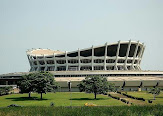It is with great excitement—and perhaps, more than a little pride—that I congratulate my dear friend, Professor Kingsley Moghalu, on his well-deserved appointment as the inaugural president (or what we call Vice Chancellor in the Commonwealth) of the African School of Governance (ASG) based in Kigali, Rwanda.
His selection by the visionary coalition of President Paul Kagame, former Ethiopian Prime Minister Hailemariam Desalegn, and other African leaders is a nod to his profound intellect and achievements and a sign that Africa is ready for the transformative leadership he embodies.
As I reflect on the years since Kingsley’s relocation to the United States, one memory that stands out is my gentle nudge to see him run for president in 2019 during one of our extended conversations about Nigeria. It reflected my belief, then as now, in his capacity to lead and make a difference.
In many ways, Professor Moghalu’s leadership of ASG is the ideal culmination of his life’s work. With his deep mastery of the political economy of development reflected in his books, occasional think pieces in the popular media, and multiple news interviews, Kingsley is uniquely positioned to steer a pan-African, professional graduate school dedicated to reshaping governance across the continent.
It’s fitting that ASG enjoys the backing of both the Mastercard Foundation and a strategic partnership with Singapore’s prestigious Lee Kuan Yew School of Public Policy. That link speaks volumes, not just about ASG’s ambition, but about Kingsley’s own cosmopolitan ethos.
As I pointed out in my March 31, 2018, column titled “Moghalu, Sowore, and the Diasporan Presidential Challenge,” Kingsley has always been, at least from my personal knowledge of him, a man who transcends narrow, primordial loyalties.
His grasp of Nigeria’s complexities and the role of inclusive leadership has always been admirable, and his experiences with the United Nations, alongside his tenure as a deputy governor at the Central Bank of Nigeria, have given him a truly global perspective.
His ability to contextualize the African experience within global frameworks and distill complex ideas into actionable insights has always stood out.
What impresses me most about Kingsley is not just his formidable intellect or his ability to engage in the most intricate policy debates with remarkable ease and grace. It is his energy, his passion, and the sheer originality of his ideas–even when I disagree with some of them.
In a world often content with tired paradigms, Kingsley offers a fresh vision and a blueprint for governance rooted in Africa’s realities yet informed by the best practices of the world’s most dynamic economies.
He isn’t just theorizing from the ivory tower; he’s lived the global comparisons, from Nigeria to the United States and back, and now, as the helm of ASG, from Rwanda to the world.
With Kingsley at the vanguard, I believe ASG is poised to be more than just a school. It will become a beacon for all of Africa that will cultivate the next generation of leaders who will redefine governance and public policy across the continent.
I, for one, cannot wait to see the incredible work he and the ASG team will do in the years ahead.
Nonetheless, this appointment, though a tremendous gain for Africa, is also a poignant reminder of the talent that Nigeria has yet to fully harness.
I have no doubt that under his leadership, the African School of Governance will become a beacon of excellence and innovation that will drive the much-needed transformation in leadership and governance across the continent.
Congratulations once again, Professor Moghalu. This is a fitting next chapter in your distinguished career.





























